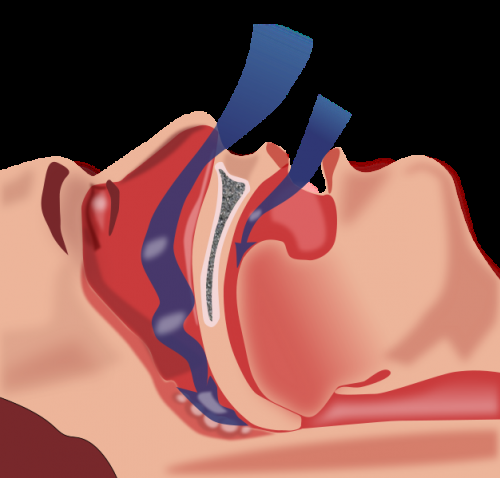Risk of cardiovascular complications post-surgery doubles for patients with sleep apnea

According to a new study published today in The Journal of the American Medical Association (JAMA), patients who have severe obstructive sleep apnea have a significantly higher risk of complications related to their heart in the first 30 days after major surgery.
"We found that the risk of postoperative complications related to their heart was 50% higher in patients with sleep apnea compared to those without sleep apnea," says Dr. Frances Chung, a Clinician Investigator with the Krembil Research Institute and a Professor in the Department of Anesthesiology and Pain Management at the University Health Network and University of Toronto.
Severe obstructive sleep apnea is the most common type of sleep breathing disorder and has also been associated with a higher risk of cardiac diseases, hypertension, stroke, atrial fibrillation, diabetes and cognitive impairment. It is also associated with three-fold increase in death rate.
During obstructive sleep apnea, the upper airway is blocked by the tongue and surrounding tissues during sleep, which may result in a lack of oxygen to the brain. "As a result, in the general population, obstructive sleep apnea is associated with a higher risk of cardiovascular complications including high blood pressure, angina, irregular heartbeat, heart failure and sudden death," says Dr. Chung. "In this study, we wanted to determine whether sleep apnea would pose a similar risk to surgical patients."
Key Findings:
- The authors identified 1,218 pre-surgical patients newly diagnosed with sleep apnea and followed them for 30 days after their surgery.
- These surgical patients had a 50% higher risk of complications related to their heart. The authors believe this is due to the sleep apnea going undiagnosed and untreated.
- On further analysis, patients with severe sleep apnea were associated with a 14-fold increase in cardiac death, an 80% higher risk of heart injury and an almost 7-fold higher risk of heart failure.
- Since sleep apnea occurs while you're asleep, 80% of men and 90% of women with sleep apnea may not even know they have it.
Bottom Line:
30% of our surgical population has unrecognized moderate to severe sleep apnea. The patients in this study were not diagnosed and they were not treated before surgery. "The key takeaway here is that if patients have symptoms of sleep apnea, perhaps they should be treated before undergoing major surgery," says Dr. Chung. "Further study is needed to determine how best to prevent patients with severe sleep apnea from having a higher risk of heart complications."
More information: Journal of the American Medical Association (2019). DOI: 10.1001/jama.2019.4783


















